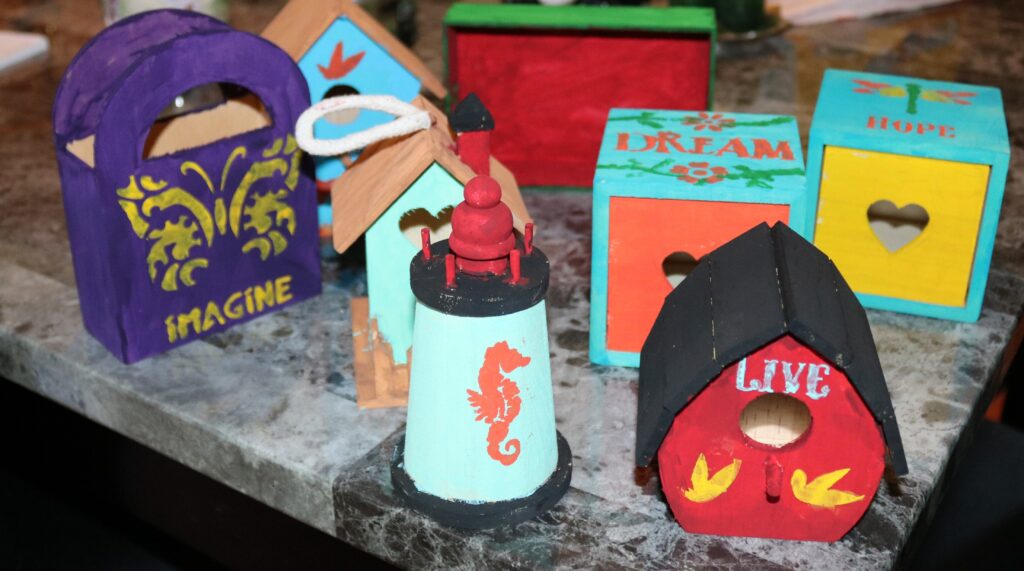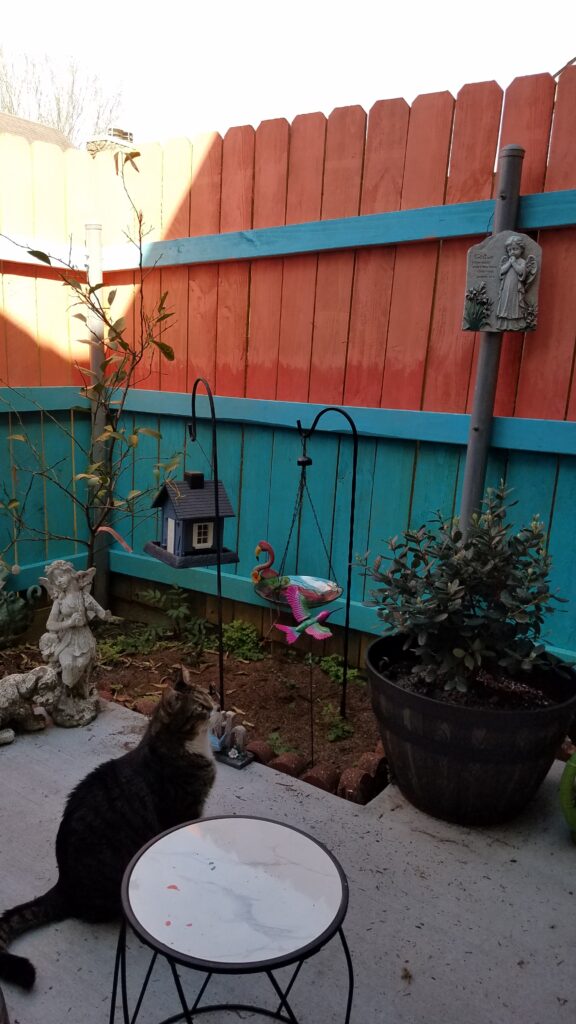It seems that everywhere we look these days people are marking the one year anniversary of the onset of the covid pandemic. We look back and recall what our initial reactions may have been, which may have ranged anywhere from “we are all going to die,” to “it’s just a flu,” to “this is all about politics,” or “this may be bad but we will overcome this.” Because I am a social worker, I preferred the latter response, so I tried my best to stay in that mode. Don’t get me wrong, I have lost friends and have had friends who were very sick, so I have had sad moments. And I know that some people have a lot of fears about how to get through this situation financially. But I tried to make the best of a situation that was beyond my control by finding peace where I could.
I’ll be honest up front. I am in introvert. The idea of spending time in my home alone is not scary to me. Sure, I feel lonely sometimes. I do love people, but I feel most comfortable when I am at home reading my books. But I prepared myself for the unknown by finding some additional projects to do during the time we were asked to hunker down. I am not artistic, but I decided I wanted to paint because I saw someone on a home improvement show painting. I dare not paint a wall (yet), but I found some little pieces of wood to paint, and I enjoyed this mindful and peaceful activity. And I was able to bless my friends and acquaintances with some little gifts they may never use. Since then, I have stepped up and just finished painting my patio fence. Maybe a wall is next.

During this time, I began to notice that this pandemic caused people to respond in a variety of ways. Some of my clients are having a lot of difficulty adjusting to this new reality. Some chose this “down” time to look inside of themselves to see what parts of their lives they could improve upon. Some are rethinking their careers. Some have begun to feel unmotivated or unproductive, and they cannot figure out why.

Pre-Covid, we had various coping strategies for dealing with life’s bumps in the road. We could go shopping, we could complain to the sympathetic ears of our coworkers. We could go to the gym, attend church, have coffee with friends. Most of these strategies involved keeping busy and trying to remain on the treadmill of life. Many of our coping strategies did not involve using quiet time to just “be” – to take time think things out, to process our feelings and emotions. We kept busy.
We have become used to keeping busy as a coping mechanism. But is this the best coping strategy? How long has it been since we allowed ourselves time to just be still? Some of us may feel that down time is a luxury with no value, so seeking it would be a waste of time. Perhaps we feel guilt when we are not busy. Or perhaps we are afraid of quiet time because we may grow to like it too much.
Since the industrial age, we have been lured into thinking that we must be busy to be productive. In fact, often we find that once we start moving, we get more done. The busier we are, the more we do. If we stop, we fear that all of those balls we are juggling in the air will come crashing down. But before cars, social media, internet, television, and even electricity, people were forced into quiet time because there was nothing else to do. People sat on porches, sat by a fire, took walks and had simple conversations. Nowadays, we may perceive these activities as being a useless waste of time. Or, if we stop to examine our lives and our feelings, will we like what we see? If we have the time for self-examination, does this mean that what we do is not important?

Quiet time can be a gift if we learn to use it and appreciate it instead of resenting it or fearing it. I am reading a book about the life of Jesus, and Jesus was busy mentoring disciples, philosophizing with the Pharisees, healing the sick, being chased and persecuted. What did He do to revive his energy? He went off alone to pray. There, He became reenergized. He found peace. Because of this, Jesus responded appropriately in every situation. He had control of His emotions. He knew which battles to fight and which to ignore. For most of us, when we feel stress, we lash out, we curse, we go out drinking with our friends as a ‘well deserved’ release from stress, we exercise, we do, do and do more. We accumulate stress then we work it off. But what if we just rested? And what if we made resting a priority?
Even though it seems like a contradiction, our times of rest are productive. When we rest in healthy ways, we become reenergized, our minds become sharper, and we learn what activities are important, what our dreams are and ways we can reach them. When we slow down, we learn to recognize our emotions, and to acknowledge them before they get the better of us.
One form of productive relaxation is the practice of Mindfulness. We can spend mindful time in prayer or we can spend time sitting quietly, focusing on breathing and relaxing our muscles. We can sit alone in nature and express gratitude for the beauty around us. There are many versions of mindfulness and many ways to spend time restfully. When I was painting my pieces of wood, this was a mindful activity. When I am trying to stay within the lines of my stencils or choosing what colors to use next, I am not thinking of my workload or my annoying coworkers or my sometime feelings of loneliness and isolation. My mind is relaxing and rejuvenating.
Quiet time helps us to achieve inner peace. No one can give us peace, it must come from inside of ourselves. Inner peace comes from growing spiritually. Spiritual growth is difficult if we are busy all of the time. If we practice restfulness daily for a period of time, we will learn to recognize our emotions as they arise, to feel them, to express them in the time we are feeling them, and to often resolve conflict before it happens by saying to someone “I’m feeling hurt” in the moment instead of lashing out or holding grudges that fester. I know the benefits of mindfulness and restfulness. I have researched the theories and statistics and written papers on it. But even though I know these things, I do not practice restfulness as often as I would like. It takes intentional dedication to establish a routine and practice it regularly.
During the time of this pandemic, one thing that I hope that we have all learned is that quiet time is beneficial. Soon, enough people will be vaccinated and we will begin the return to our “normal” activities. My hope is that we will establish a new “normal” and make time for ourselves to experience times of quiet peace, inner reflection, prayer, practicing the self care that we need. When we learn to be kind to ourselves, we will be creating more kindness in the world that will spread to others. Our rested minds benefit us and humanity.